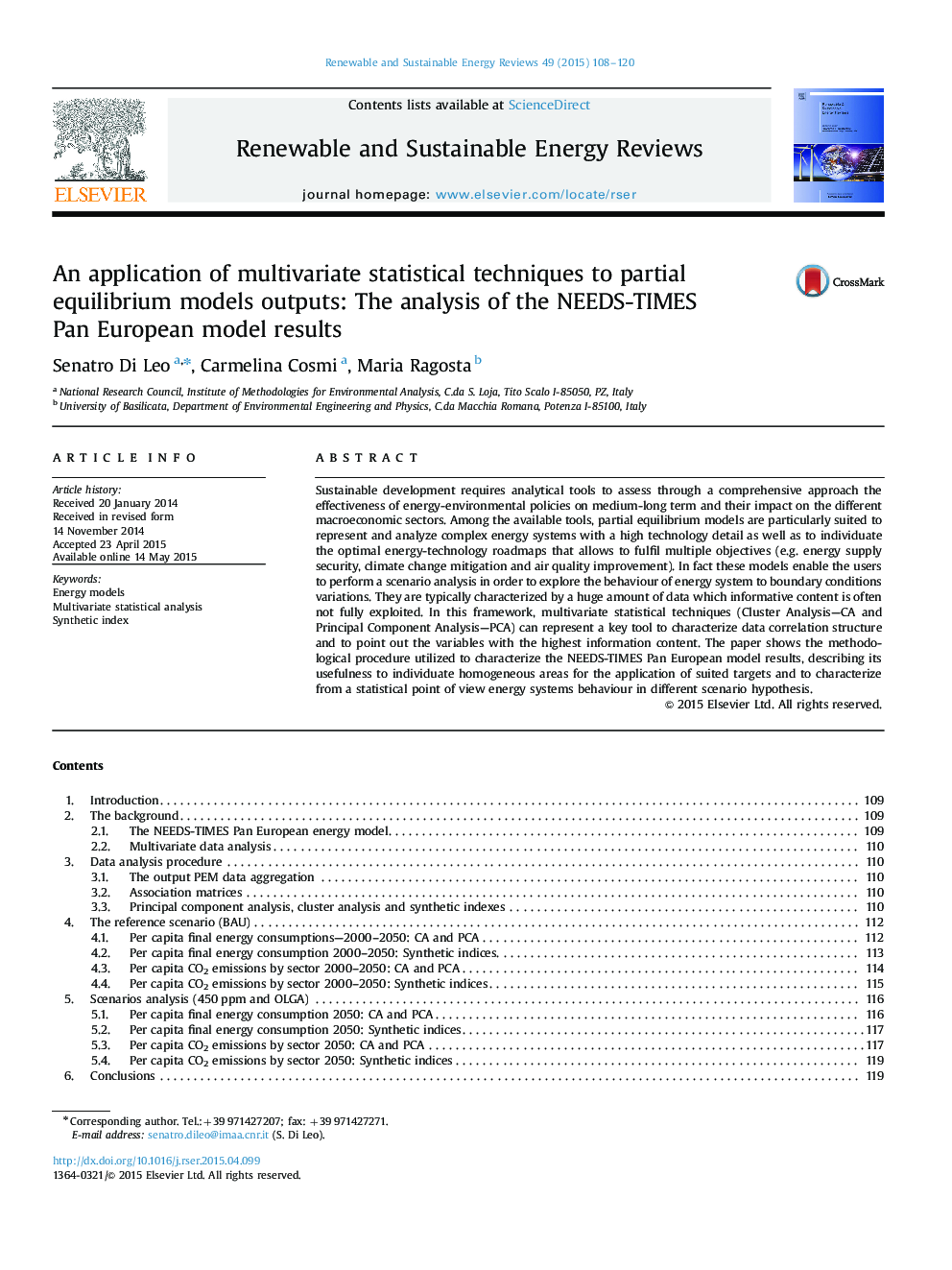| Article ID | Journal | Published Year | Pages | File Type |
|---|---|---|---|---|
| 8116327 | Renewable and Sustainable Energy Reviews | 2015 | 13 Pages |
Abstract
Sustainable development requires analytical tools to assess through a comprehensive approach the effectiveness of energy-environmental policies on medium-long term and their impact on the different macroeconomic sectors. Among the available tools, partial equilibrium models are particularly suited to represent and analyze complex energy systems with a high technology detail as well as to individuate the optimal energy-technology roadmaps that allows to fulfil multiple objectives (e.g. energy supply security, climate change mitigation and air quality improvement). In fact these models enable the users to perform a scenario analysis in order to explore the behaviour of energy system to boundary conditions variations. They are typically characterized by a huge amount of data which informative content is often not fully exploited. In this framework, multivariate statistical techniques (Cluster Analysis-CA and Principal Component Analysis-PCA) can represent a key tool to characterize data correlation structure and to point out the variables with the highest information content. The paper shows the methodological procedure utilized to characterize the NEEDS-TIMES Pan European model results, describing its usefulness to individuate homogeneous areas for the application of suited targets and to characterize from a statistical point of view energy systems behaviour in different scenario hypothesis.
Related Topics
Physical Sciences and Engineering
Energy
Renewable Energy, Sustainability and the Environment
Authors
Senatro Di Leo, Carmelina Cosmi, Maria Ragosta,
